Science
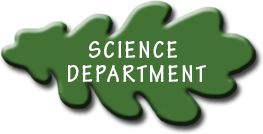
The Science Curriculum
Aligned with the MOE Primary Science Syllabus and the emphasis on 21st Century Competencies, the Science curriculum aims to inspire students and fascinate them with everyday science phenomena that occur in everyday activities. It also aims to nurture students as active inquirers and creative problem-solvers. Leveraging children’s curiosity and their sense of wonderment and exploration, the curriculum seeks to fuel this spirit of curiosity.
Our long-term goal is for students to enjoy and value Science and apply what they have learnt to explore their natural and physical world. This is done by equipping them with knowledge, understanding and application skills as well as ethics and attitudes through Science lessons, Environment Education, Character and Citizenship Education, The Leader in Me and the school’s Applied Learning Programme, Curriculum Integration through Innovation (CI+I) programmes.
The curriculum builds in students a strong foundation in scientific knowledge and process skills and helps them in the development of reasoning, analytical, decision and problem-solving skills. At the same time, the curriculum allows students the flexibility to respond to different contexts and the willingness to explore new territories and learn new things.
The objectives of the Science curriculum are to:
- equip students with a strong foundation of scientific skills and concepts, and habits of mind to understand and make sound decisions for issues related to Science and Technology as self-directed learners;
- develop in students reasoning and analytical skills for problem-solving as confident citizens;
- equip students with ethics and attitudes to engage in Science-related experiences as reflective citizens; and
- stimulate students’ curiosity and interest in the world around them as concerned citizens.
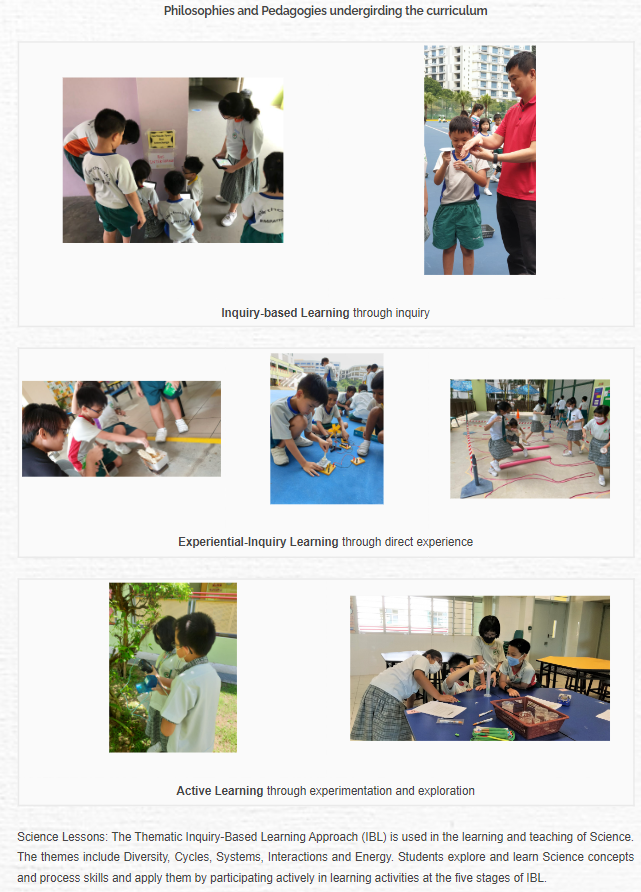
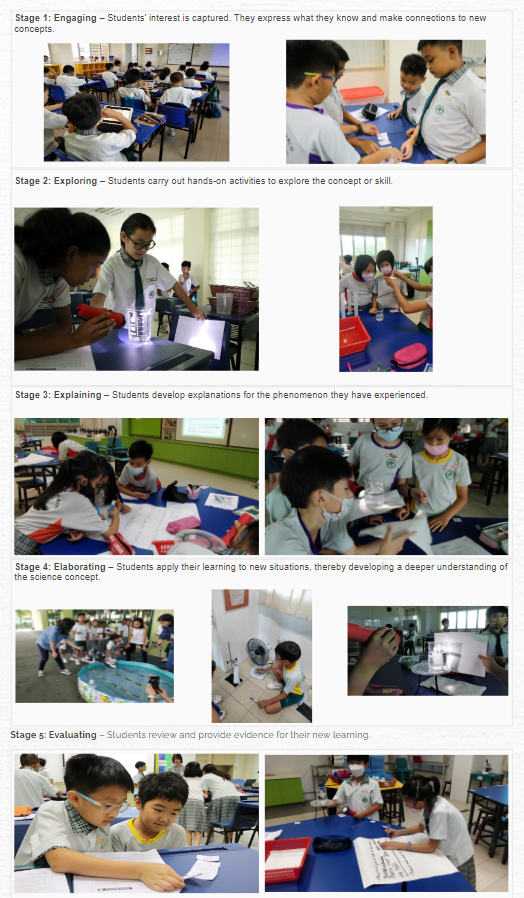
Early Experiences
At Primary 1 and 2, students are introduced to selected scientific concepts and process skills during English Language lessons and Programme for Active Learning (PAL) lessons. Age-appropriate scientific concepts and process skills are implicitly infused into Modified Language Experience Approach (MLEA) lessons. Students are engaged in shared experiences where they use observation and inference skills to inquire and make sense of the natural world.
Students learn to use their sense of smell and taste during their writing activities such as making a sandwich and ice-cream party. During English Language lessons, students observe the different stages in the life cycle of a butterfly and learn concepts on magnetism through the books, ‘A Butterfly is Born’ and ‘Magnetic Max’ respectively. During PAL lessons, they also make observations around the school using a magnifying glass.

Collaborative Learning Experiences
Students collaborate with knowledgeable others such as their teachers, peers and parents to make learning authentic and meaningful. In many deliberate attempts to connect Science learning to everyday phenomena, students go through experiential and active learning in formal and informal contexts.
Teachers also explored the use of seamless learning, learning study and active learning using Student Learning Space as key pedagogical approaches and strategies to deepen learning.
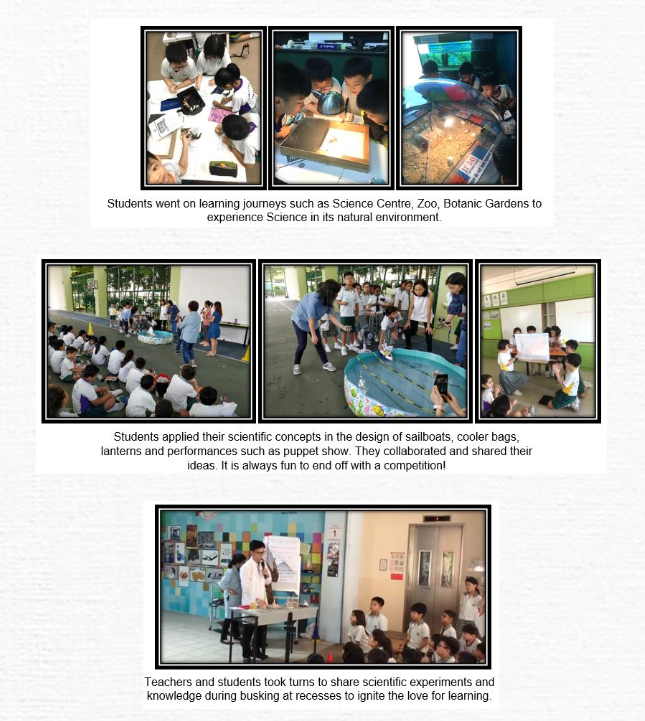
Enrichment Programme
The Excellence 2000 (E2K) Science Programme aims to develop scientific inquiry process skills among high-ability primary students in Science, as well as nurture other important 21st century competencies such as resilience and resourcefulness, critical and inventive thinking, and effective communication skills.
Students learn Science by going through the same process that scientists use to generate knowledge in Science. Through collaborative learning and guidance provided by the teacher, students practise scientific thinking and reasoning, develop confidence and independence in carrying out scientific inquiry as well as scientific habits, attitudes and dispositions.
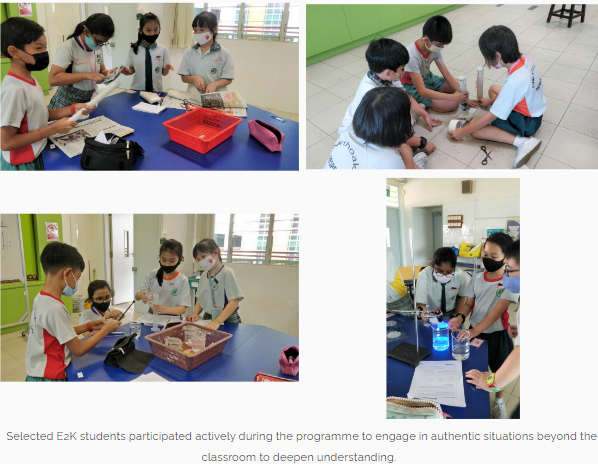
Environment Education
The Environment Education is concerned with providing students the opportunities to acquire knowledge, values, attitudes, commitment and skills needed to protect and improve the environment. We hope to develop and reinforce patterns of environmentally sensitive behaviours among students for a sustainable environment.
In school, every class has green leaders to look into conversation of energy and recycled materials were brought to school by students and staff for use during school programmes such as P3 modular enrichment, VIA programmes by CCE department and CI+I. Recyclable items are also collected in our continuous efforts to keep our environment sustainable. Assembly programmes are also conducted by teachers and student ambassadors to educate our school community.
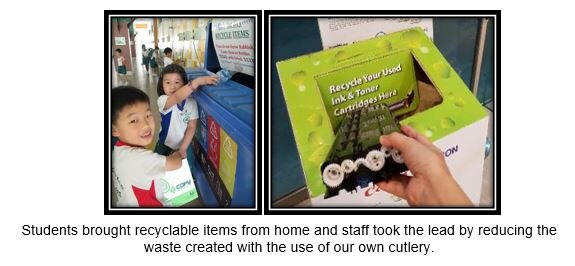
For the Primary 3, a 5-session module on Environment and Outdoor Education is conducted as part of the Primary 3 Modular Enrichment Programme. In the module, students learn to understand environmental issues through Problem-Based Learning (PBL). They take on roles as Northoaks Town residents, Scientists and Environmentalists to investigate i the environmental challenges the town faced and redesign it into one that is more environmentally-friendly at the end of the module.
They also learn about the benefits of EM Composting in the treatment of food waste and how they can turn food waste into useful products (compost soil) to enhance the growth of plants. The students grow vegetables using the compost soil they have made. Through the programme, students learn to appreciate resources around them and develop a sense of responsibility by taking care of the plants they grow.
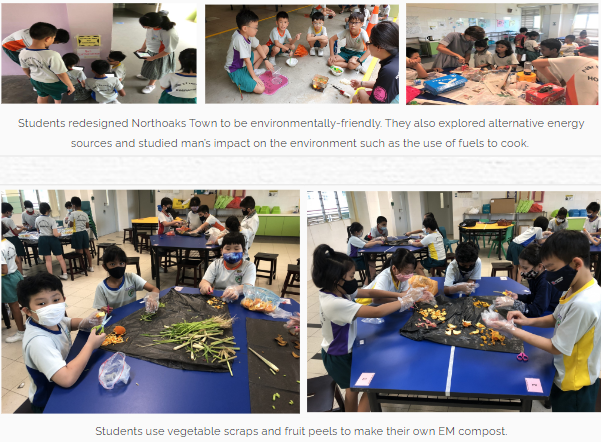
Gardens in the School
Students are surrounded by the lush greenery in the school. Experiences with nature will stimulate their natural curiosity and they will learn to appreciate living things and come to understand the importance of the relationships among them. The students have an area in school for growing food plants. The middle primary students will learn to grow and take care of various types of vegetables and herbs. They will collect data to study the growth of the plants.
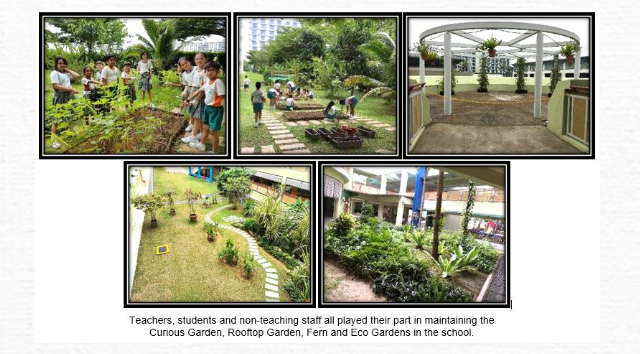
The Environmental Science Club
The school’s Environmental Science Club is made up of selected Primary 4, 5 and 6 students who show great interest in Environment Education and are willing to lead others in improvement of school environment. The school engages the team in experiential learning by working towards environmental sustainability for both the school and the community. The team members are engaged in fun and action-oriented learning which includes exploring environmental issues, conducting scientific experiments and participating in Learning Journeys in search for ideas and/or possible solutions to the environmental issues we face. The team champions green efforts within and beyond the school. More details on the Environmental Science Club can be found under CCA in our school website.
Disclaimer: Some of the photos were taken during Pre-Covid times.

